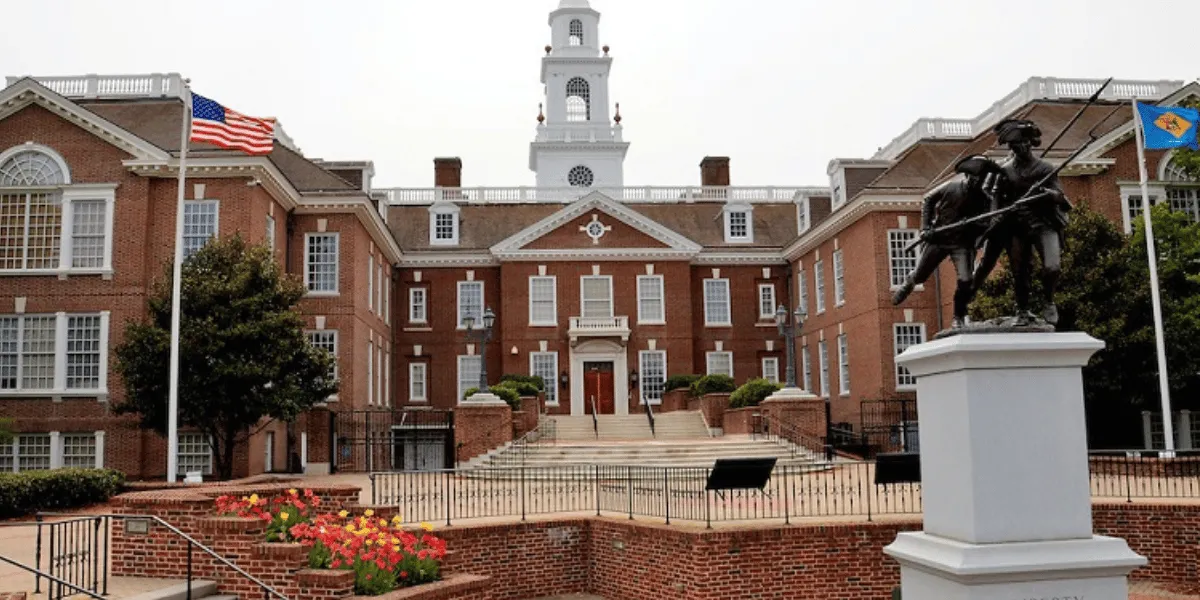Key Takeaways
- Following three years of state-funded pay raises, Delaware educators now say they are marginally more satisfied with their jobs and less likely to leave the profession, according to the latest survey from the Delaware State Education Association.
- Teacher retention has long been a challenge, but the factors and conditions that most frequently lead educators to leave the profession – such as low pay and burnout – were made worse by the COVID-19 pandemic.
- Faced with a surge of departures during the pandemic, Delaware set a goal to reach a starting teacher salary of $60,000 by Fiscal Year 2028.
DOVER – Better pay for teachers and specialists may be delivering some signs of progress in Delaware’s effort to address an ongoing statewide teacher shortage.
Following three years of state-funded pay raises, Delaware educators now say they are marginally more satisfied with their jobs and less likely to leave the profession, according to the latest survey from the Delaware State Education Association.
However, concerns about unaddressed student behavior and other professional challenges persist.
“While public education in Delaware is facing a number of difficult challenges, we know what needs to be done so our schools can better attract and retain high-quality educators,” DSEA President Stephanie Ingram said.
“Educators feel better about their jobs, even when faced with increasing responsibilities, when they are paid a living wage and feel valued by their communities,” she said. “As state lawmakers and education leaders work to tackle some of the more intractable issues facing our public schools, we also need to make sure we are building on the progress we’ve made, especially when it comes to the connection between educator pay raises and fully staffed schools.”
Teacher retention has long been a challenge, but the factors and conditions that most frequently lead educators to leave the profession – such as low pay and burnout – were made worse by the COVID-19 pandemic. Faced with a surge of departure during the pandemic, many states quickly moved to increase teacher salaries, including Maryland, New York and Virginia.
Based on recommendations from the Public Education Compensation Committee, which included a bipartisan group of legislators, Delaware followed suit soon after by setting a goal to reach a starting teacher salary of $60,000 by Fiscal Year 2028.
As a result, teachers and specialists have seen the state-funded portion of their pay increase by 19% over the last three years, with a 7% raise recommended for both FY 2027 and FY 2028. Paraprofessionals, custodians, food service workers and other Education Support Professionals, meanwhile, have seen their pay increase at the same rate as other state employees.
Under the current education funding model, the State of Delaware pays roughly 70% of a teacher’s salary with local school districts and charters responsible for the remaining 30%.
While many educators still have not seen a pay increase on the local portion of their salary, state-funded pay raises have corresponded with a rising number of educators who report they are somewhat or very satisfied with their job.
Just before the 2024 pay increase took effect, 74% of Delaware educators reported overall job satisfaction. After this year’s pay increase, overall job satisfaction reached 80%.
65% of educators now say they plan to stay in the profession for at least the next couple of years, compared to 62% in 2024. Meanwhile, the percentage of educators who say they plan to leave for a different field dipped slightly from 14% in 2024 to 11% in 2025.
Those positive trends reflect similar progress recorded by recent national educator survey data.
Delaware educators, meanwhile, painted a less rosy picture when asked about their working conditions. In the latest survey, only 27% said they are satisfied with the current conditions facing educators like them.
A majority of DSEA members also said student behavioral challenges make them at least somewhat more likely to leave education (58%), which is on pace with the 59% who said the same in 2024.
Educators were clear about what steps are needed to improve public education in Delaware with 97% supporting smaller class sizes, 93% supporting additional instructional staff in high-needs classrooms, and 83% calling for an increase in recess time and other play-based learning in K-3.
The latest survey of Delaware public educators was conducted via email by Emma White Research, which interviewed more than 1,460 active DSEA members from July 10-15.
